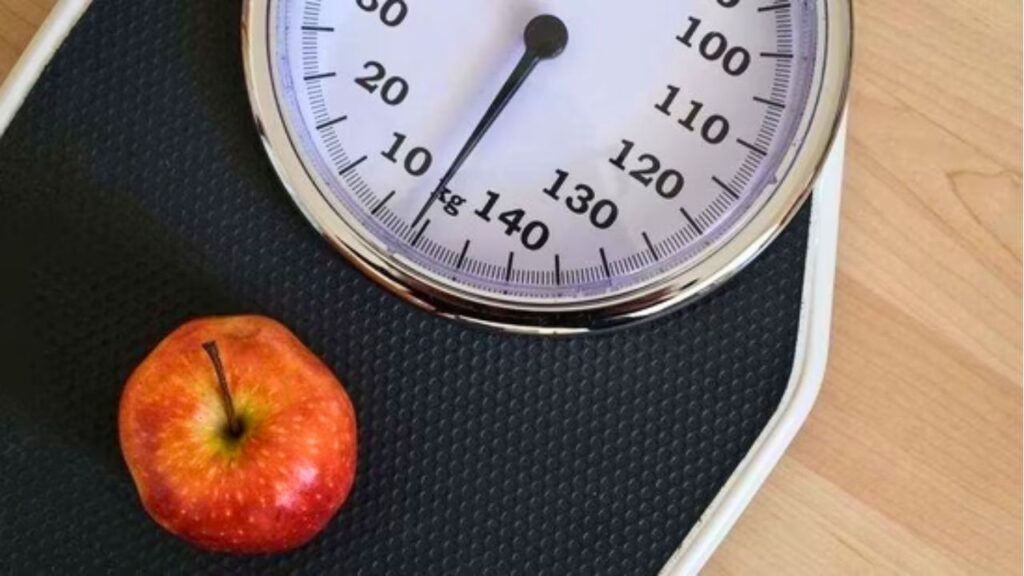Introduction
In the midst of a global weight epidemic, it has become imperative to decipher the intricate puzzle of overweight causes and uncover the keys to ultimate cures. The journey from understanding the complex factors driving weight gain to identifying effective strategies for sustainable weight loss is a critical endeavor that holds the promise of transforming lives. In this comprehensive exploration, we delve deep into the realms of genetics, environment, hormones, psychology, and lifestyle choices to unravel the mysteries behind overweight and offer actionable solutions.
Cracking the Code: Overweight Causes & Ultimate Cures 2023
Understanding Overweight and Obesity
Defining Overweight and Obesity: Overweight and obesity, terms often used interchangeably, denote a condition in which excess body fat accumulates, surpassing levels considered healthy. While overweight refers to an excess of body weight relative to height, obesity signifies a more severe condition characterized by excessive fat accumulation.
Body Mass Index (BMI) Explained: Body Mass Index (BMI), a widely utilized measurement, assesses weight relative to height. Though a valuable tool for preliminary assessments, it doesn’t account for variations in muscle mass and distribution of fat.

Genetic Factors in Overweight
Genetic Predisposition: Unraveling the Role: Genetics plays a significant role in an individual’s susceptibility to weight gain. While not deterministic, certain genetic variants can influence factors such as metabolism, appetite regulation, and fat storage.
Impact of Genetic Variants on Metabolism: Specific genetic mutations can affect metabolic rate, altering how efficiently the body burns calories. Variations in genes related to lipid metabolism also contribute to weight-related issues.
Read more articles :- hrhealthtips.com
Environmental Triggers
Sedentary Lifestyles: Modern-day Culprit: Our increasingly sedentary lifestyles contribute to weight gain. Extended periods of sitting and reduced physical activity disrupt the body’s energy balance, promoting fat storage.
Obesogenic Environment and Its Influence: The environment we inhabit has become increasingly conducive to weight gain. Factors such as easy access to high-calorie, low-nutrient foods and the prevalence of technologies that discourage physical activity contribute to the obesity epidemic.
Diet and Nutrition Influence
Caloric Imbalance: The Core Equation: Weight gain is fundamentally driven by a caloric imbalance—consuming more calories than the body expends. This excess energy is stored as fat.
Highly Processed Foods: The Hidden Saboteurs: Highly processed foods, laden with added sugars, unhealthy fats, and preservatives, undermine weight management efforts. These foods often lack satiety and can lead to overconsumption.
Hormonal Imbalances and Weight Gain
Leptin and Ghrelin: Hormones Controlling Appetite: Leptin and ghrelin, the “hunger hormones,” play pivotal roles in appetite regulation. Leptin signals fullness, while ghrelin stimulates hunger.
Insulin Resistance: Linking Weight and Metabolism: Insulin resistance, often associated with obesity, hinders the body’s ability to use insulin effectively. This disruption affects glucose regulation and can lead to weight gain.

Psychological Factors in Overeating
Emotional Eating: Coping Mechanism: Emotional eating involves using food as a means of coping with stress, boredom, or emotional distress. This behavior can contribute to overeating and weight gain.
Stress and Cortisol: Impact on Weight: Chronic stress triggers the release of cortisol, a stress hormone. Elevated cortisol levels can lead to increased appetite and fat storage, particularly around the abdominal area.
Impact of Sleep Deprivation
Sleep’s Role in Weight Regulation: Sleep is essential for weight management. Poor sleep disrupts hormonal balance, affecting appetite-regulating hormones like leptin and ghrelin.
Disrupted Sleep Patterns and Weight Gain: Irregular sleep patterns and sleep deprivation alter circadian rhythms, influencing metabolism and contributing to weight gain.
Gut Microbiota and Weight
Gut-Brain Connection and Appetite Regulation: The gut microbiota communicates with the brain, impacting appetite regulation and metabolism. An imbalance in gut bacteria composition can influence weight.
Microbiome Composition and Its Effects: Studies reveal that a diverse and balanced gut microbiome is associated with healthy weight management. An imbalance, known as dysbiosis, can lead to inflammation and weight gain.
Role of Physical Activity
Exercise and Energy Expenditure: Physical activity expends energy, aiding in weight loss by increasing caloric expenditure. Engaging in regular exercise also improves cardiovascular health and overall well-being.
Muscle Mass and Metabolic Rate: Building and maintaining muscle mass is crucial for weight management. Muscle tissue burns more calories at rest than fat tissue, thus boosting resting metabolic rate and promoting weight loss.

Socioeconomic Factors
Socioeconomic Status and Access to Healthy Options: Socioeconomic status can influence dietary choices. Limited access to fresh, nutrient-dense foods due to financial constraints can lead to the consumption of calorie-dense, less nutritious alternatives.
Cultural Norms and Eating Habits: Cultural norms and traditions play a role in shaping eating habits. Certain cultural practices may involve larger portion sizes or specific types of foods that contribute to weight gain.
Health Risks Associated with Overweight
Cardiovascular Diseases and Hypertension: Excess weight increases the risk of cardiovascular diseases, including heart disease and hypertension. Accumulated fat can lead to arterial plaque buildup, compromising heart health.
Diabetes and Metabolic Syndrome: Obesity is closely linked to type 2 diabetes and metabolic syndrome, characterized by insulin resistance, high blood sugar, and elevated blood pressure. These conditions raise the risk of various health complications.
Mental Health Implications
Body Image Issues and Self-esteem: Overweight and obesity can lead to negative body image and reduced self-esteem. Societal pressure and stigma contribute to body dissatisfaction and psychological distress.
Overweight’s Link to Depression and Anxiety: Research suggests a bidirectional relationship between weight and mental health. While excess weight can contribute to mood disorders, depression and anxiety can also lead to weight gain through emotional eating.
Balancing Hormones for Weight Management
Lifestyle Modifications for Insulin Sensitivity: Lifestyle changes, including regular physical activity and a balanced diet, improve insulin sensitivity. This aids in glucose regulation and prevents excessive fat storage.
Leptin Regulation through Diet and Sleep: Adequate sleep and consumption of satiating, nutrient-dense foods contribute to optimal leptin levels. This helps maintain a healthy appetite and body weight.

Dietary Strategies for Sustainable Weight Loss
Portion Control and Mindful Eating: Practicing portion control and mindful eating encourages awareness of hunger cues and prevents overeating. Savoring each bite and eating slowly enhance the eating experience.
Mediterranean Diet and Nutrient-dense Foods: The Mediterranean diet, rich in vegetables, fruits, whole grains, lean proteins, and healthy fats, supports weight loss and heart health. Nutrient-dense foods provide satiety while promoting overall well-being.
Incorporating Physical Activity
Cardiovascular Exercises for Weight Loss: Cardiovascular exercises like jogging, cycling, and swimming effectively burn calories and aid in weight loss. These activities elevate heart rate, boosting energy expenditure.
Strength Training for Muscle Maintenance: Incorporating strength training exercises preserves and builds lean muscle mass. This, in turn, enhances metabolism and contributes to long-term weight management.
Behavioral Therapy and Mindfulness
Addressing Emotional Eating Patterns: Behavioral therapy helps individuals recognize and address emotional eating triggers. Techniques such as journaling and cognitive-behavioral therapy promote healthier coping mechanisms.
Stress Management Techniques: Employing stress management techniques like meditation, deep breathing, and yoga reduces cortisol levels and curbs stress-related overeating.
Medical Interventions for Severe Cases
Bariatric Surgery: An Effective Solution: Bariatric surgery offers a viable option for individuals with severe obesity. Procedures like gastric bypass and gastric sleeve modify the digestive system, facilitating weight loss.
Prescription Medications for Weight Management: Prescription medications can assist in weight loss by reducing appetite, inhibiting fat absorption, or increasing satiety. These medications are prescribed under medical supervision.
Holistic Approaches to Weight Health
Mind-Body Practices: Yoga and Meditation: Mind-body practices like yoga and meditation foster mindfulness, reducing stress-induced overeating and promoting a balanced relationship with food.
Integrating Wellness for Long-term Results: A holistic approach to wellness involves aligning physical, emotional, and mental well-being. Balancing nutrition, exercise, and self-care sustains long-term weight management.

Conclusion
In the journey to decipher the code of overweight causes and reveal extreme fixes, a diverse point of view is fundamental. From hereditary inclination and ecological impacts to dietary decisions and hormonal equilibrium, each piece of the riddle adds to the intricate peculiarity of weight gain. Furnished with experiences into the complex interaction of variables, people can leave on an excursion towards feasible weight reduction. By taking on proof based systems, embracing comprehensive methodologies, and developing a positive mentality, a definitive objective of accomplishing and keeping a solid weight becomes feasible as well as groundbreaking.

2 thoughts on “Cracking the Code: Overweight Causes & Ultimate Cures 2023”